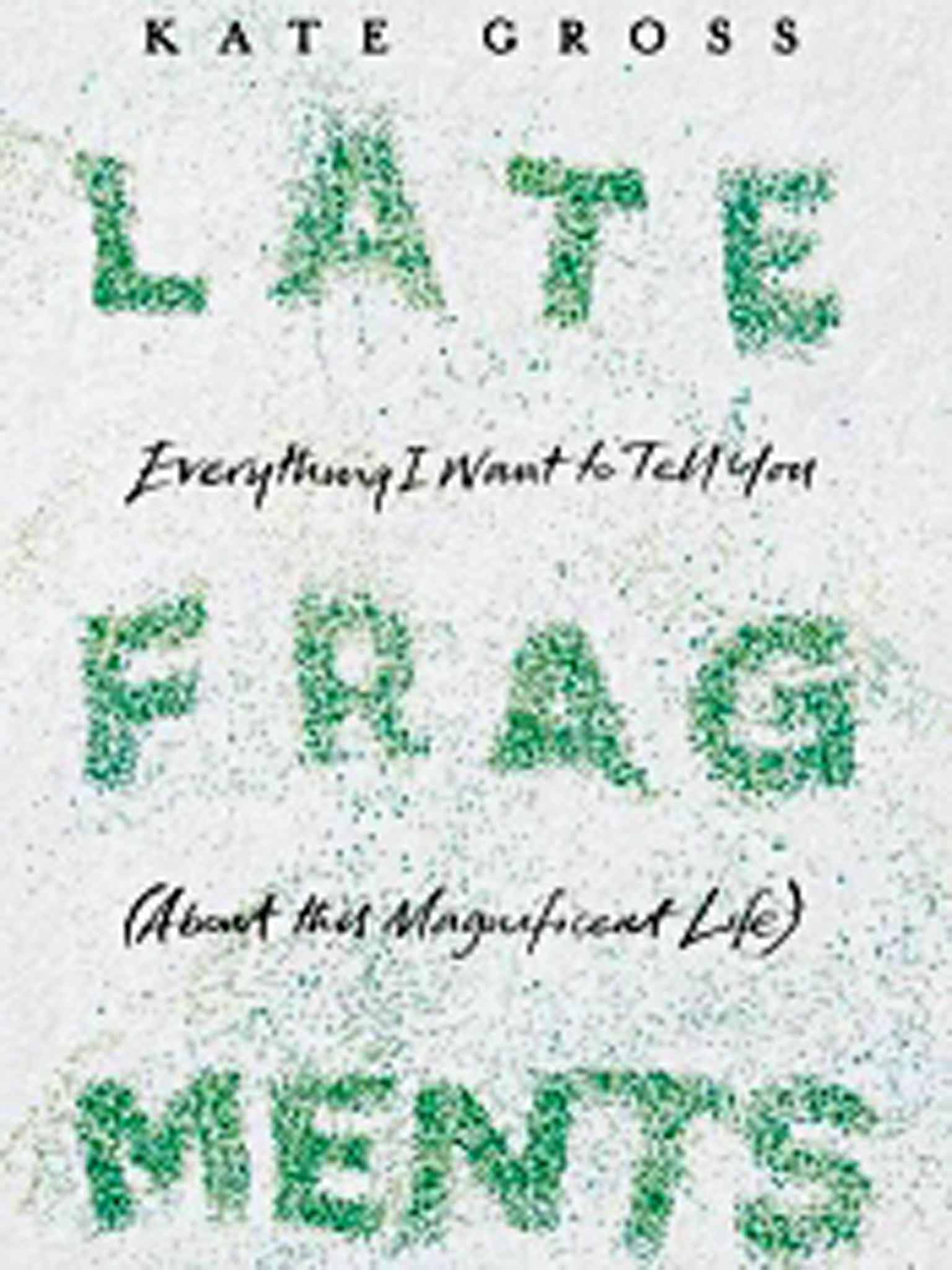Late Fragments by Kate Gross - book review: Warm and uplifting memoir of a life cut short by illness
Gross's descriptions of sickness and family life are raw, honest, yet unexpectedly positive in their message to love life for what it is, not for what you hoped it to be

Your support helps us to tell the story
From reproductive rights to climate change to Big Tech, The Independent is on the ground when the story is developing. Whether it's investigating the financials of Elon Musk's pro-Trump PAC or producing our latest documentary, 'The A Word', which shines a light on the American women fighting for reproductive rights, we know how important it is to parse out the facts from the messaging.
At such a critical moment in US history, we need reporters on the ground. Your donation allows us to keep sending journalists to speak to both sides of the story.
The Independent is trusted by Americans across the entire political spectrum. And unlike many other quality news outlets, we choose not to lock Americans out of our reporting and analysis with paywalls. We believe quality journalism should be available to everyone, paid for by those who can afford it.
Your support makes all the difference.Cancer has long preoccupied journalists and authors. Since the introduction of diary columns from the likes of Ruth Picardie and John Diamond, writers have been willing to share the daily highs and lows of living with terminal illness; and so-called misery novels are produced quickly to fill shelves.
Kate Gross’s autobiography is a collection of philosophical anecdotes gleaned from her final months, taking stock of her own life and what lies beyond it. Diagnosed with colon cancer at just 34, Gross was an ambitious mother of twins who proudly balanced bedtime stories and swimming lessons with her work as chief executive of an African charity. The disease she nicknamed the “Nuisance” rocked her world as it had for millions before her, but her story is far from unoriginal.
Unlike so many memoirs, Late Fragments doesn’t linger on tired details of treatments and tragedy. Gross’s descriptions of sickness and family life are raw, honest, yet unexpectedly positive in their message to love life for what it is, not for what you hoped it to be: "What happens to you, uncontrollable or otherwise, isn’t the important thing," she writes. "What matters is simply how you are with it. And you can always, always, choose that."
A self-confessed control freak, this memoir was perhaps Gross’s way of choosing her output, turning tragedy into creativity. Written with her family in mind – a piece of herself for her sons to treasure as they grow up – her words will speak volumes to other readers too. Gross is admirable in her acknowledgment of the everyday worries and natural, selfish fears about what life holds in store for her family once she is gone – from whether her husband, Billy, will keep on top of the laundry, to how her sons will be brought up by "surrogate mothers" and imaginary new wives.
This may all sound like hard work, but Late Fragments is a warm and oddly uplifting read. She is funny in the darkest moments of truth. Neither falsely upbeat nor purposefully dramatic or tear-jerking, the book brings Gross to life, and she feel to the reader like a friend, or at least someone you would like to have known.
I would like to have been told more about her time working in Rwanda, about her experiences in Downing Street, before setting up her charity. But time is limited. By slightly brushing over her fantastic career accomplishments, Late Fragments depicts Gross first and foremost as a mother, a wife, a friend and daughter; which is as she demonstrates, more than enough.
Join our commenting forum
Join thought-provoking conversations, follow other Independent readers and see their replies
Comments